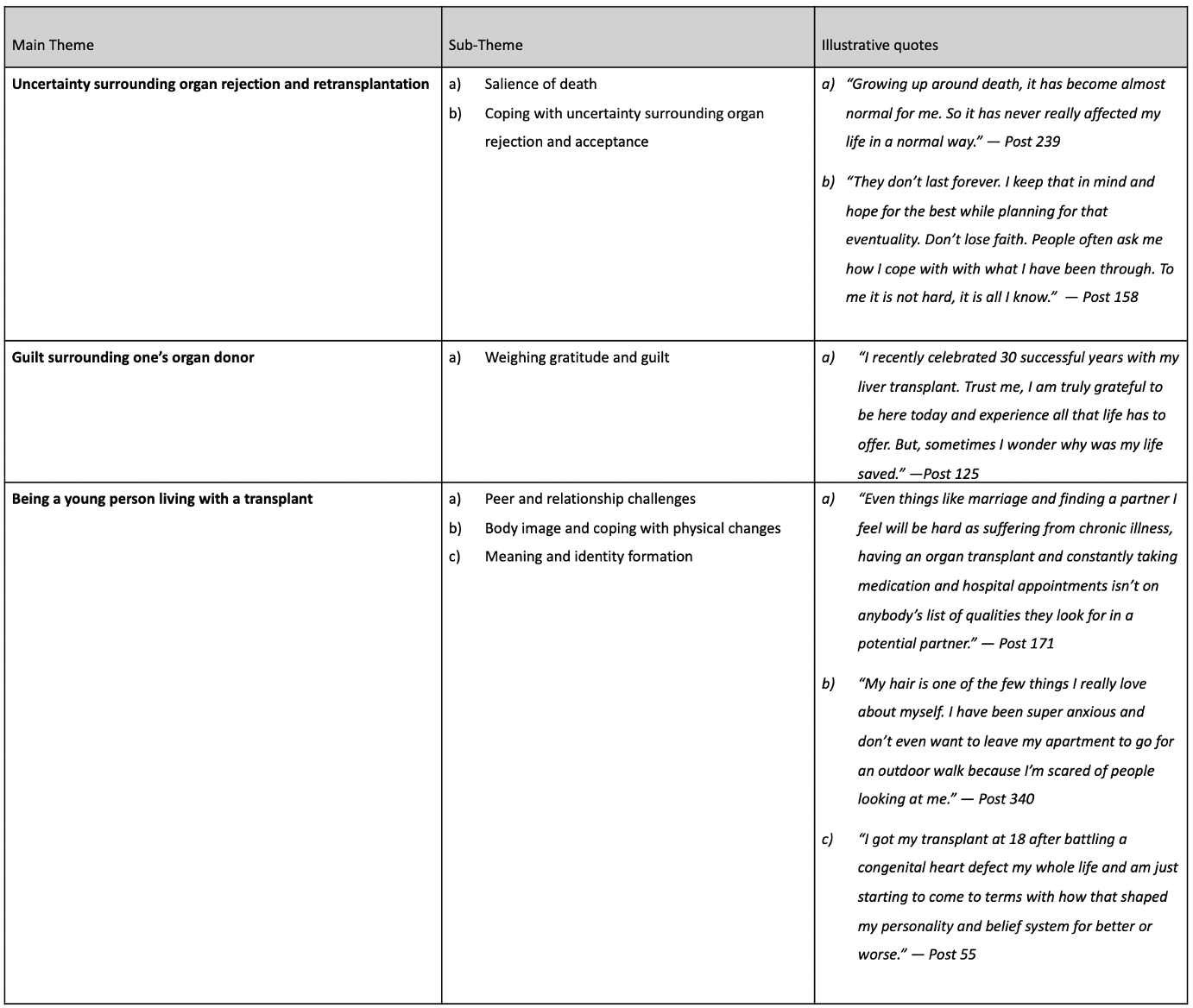
Social media as a tool to explore mental health in children living with a solid organ transplant and their families
Irene Chen1,2, Christopher Yu2, Julie M. Robillard2,3, Tom Blydt-Hansen1,2.
1Pediatrics, University of British Columbia, Vancouver, BC, Canada; 2BC Children's & Women's Hospitals, Vancouver, BC, Canada; 3Neurology, University of British Columbia, Vancouver, BC, Canada
Introduction: Solid-organ transplantation (SOT) can save a child from organ failure, but it comes with many challenges. Recent studies show higher rates of anxiety, depression, chronic stress and post-traumatic stress symptoms in pediatric organ recipients, and their families.
Although social media is an important resource for children and adolescents with chronic health conditions, we know very little about how children with a SOT and their families share and access information on social media. The objective of this project is to determine how the SOT patient community uses social media to engage about mental health.
Methods: A comprehensive search of the Reddit support group r/transplant was performed. Publicly available posts and comments were included if they self-identified as a pediatric SOT recipient (0–24 years old) or a family member of one. A qualitative thematic analysis was conducted using a coding guide developed through an iterative process, specifically targeting mental health-related content to identify major themes.
Results: A total of 357 posts and 5827 comments were included in analysis. Three central themes emerged: (1) Uncertainty surrounding organ rejection and retransplantation, highlighting mortality and anxiety as a persistent concern; (2) Emotional burden of receiving an organ, with many users expressing guilt toward their donor and dealing with existential questions and expectations about life post-transplant; and (3) Being a young person living with a transplant, including peer and relationship difficulties, struggles with body image and self-esteem, and identity formation as a transplant recipient (Figure 1).
Conclusion: This study will contribute new evidence and actionable findings on the mental health challenges shared by pediatric transplant patients and their families on social media. By understanding how this community uses social media, we can advocate for the improved quality and availability of mental health resources both online and offline.

CIHR Canada Graduate Scholarships Master's Program. BC Children's Hospital Research Institute BB&D Trainee Boost Award.
[1] Social media
[2] Mental health